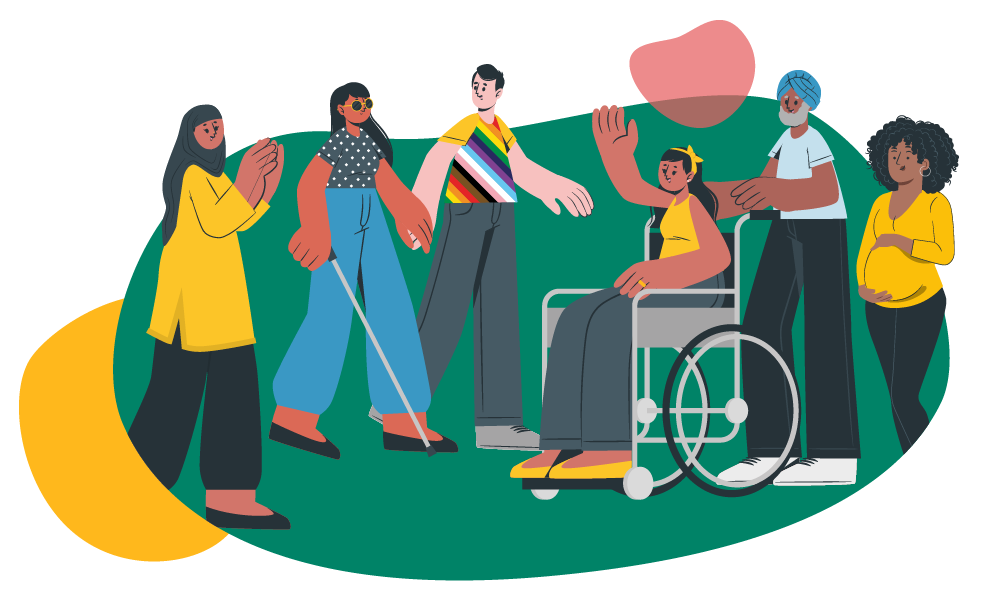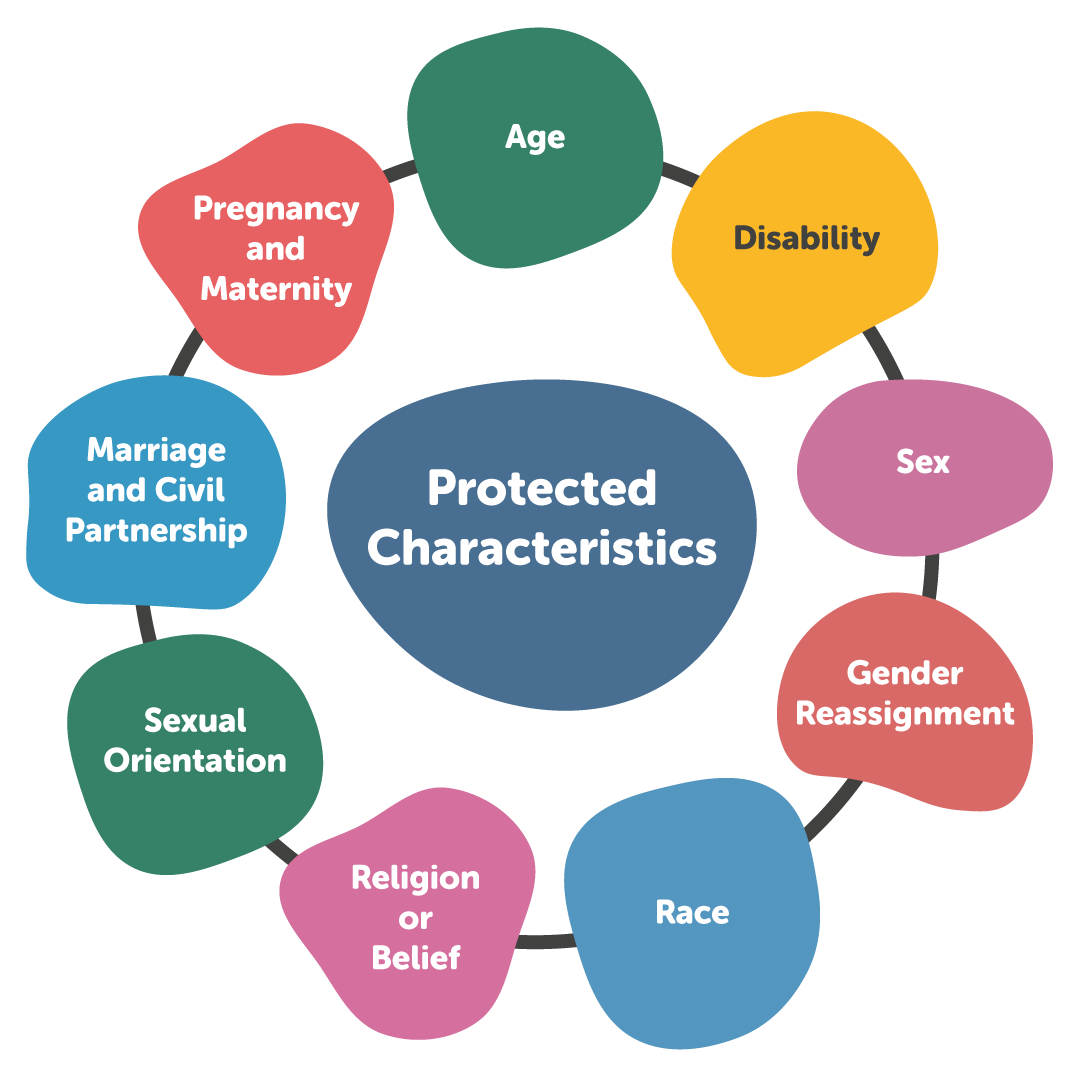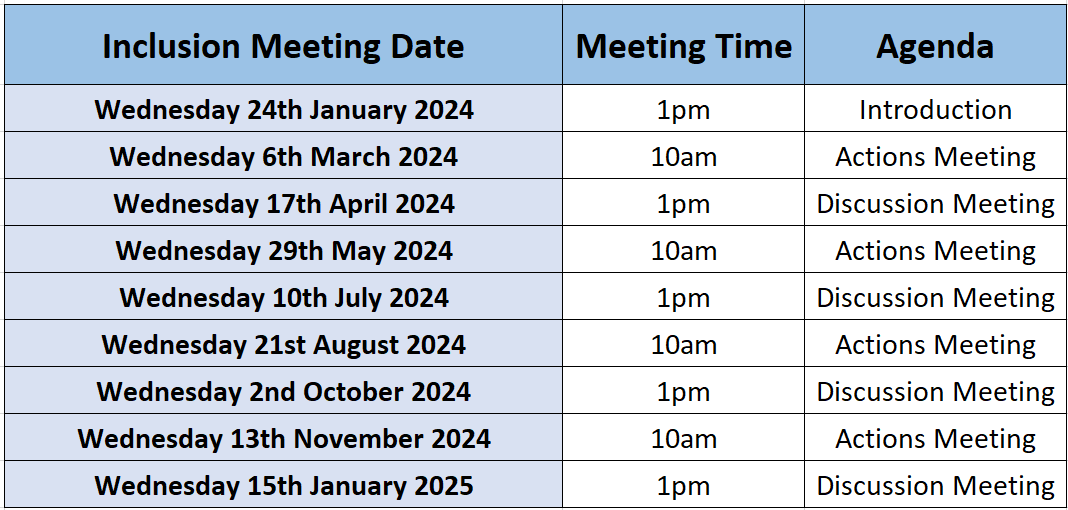Diversity & Inclusion
Your Co-op is committed to building a diverse & inclusive working environment, where colleagues feel a true sense of belonging, as well as security that they can bring their authentic selves to work.
We strive for all colleagues, members and customers to receive equal treatment and service, regardless of their age, disability, gender, sexual orientation, marital or partnership status, as well as race, pregnancy, ethnicity, religion or belief.

The Inclusion Allies Network
Your Co-op is proud to announce the latest working group, the Inclusion Allies Network!
The Inclusion Allies Network aims to make Your Co-op a more inclusive workplace for all colleagues.
The network is open to colleagues who wish to represent their own "Protected Characteristics".
There are 9 "Protected Characteristics" in total, which come from The Equality Act 2010.
Colleagues representing any of their own Protected Characteristics are welcome to join the Inclusion Allies Network, to help drive positive changes and make Your Co-op a more inclusive place to work.
If you wish to join the Inclusion Allies Network, or have any questions, please email DiversityAndInclusion@Midcounties.coop
When are the Inclusion Meetings?
The below table shows the meeting schedule for 2024. Please email us to join the Inclusion Allies Network, to get the meeting link.

Race at Work Charter
BITC (Business In The Community)'s Race At Work Charter asks businesses to make a public commitment to improving equality of opportunity in the workplace.
BITC created the Race at Work Charter with five calls to action to improve race equality, inclusion and diversity in the workplace.
These are:
-
Appoint an Executive Sponsor for Race
-
Capture and Publicise our Ethnicity Data
-
Commit at Board Level to Zero Tolerance of Harassment and Bullying
-
Make it clear that supporting equality in the workplace is a responsibility of ALL leaders and managers
-
Take positive actions that support ethnic minority career progression
-
Maintained Signatory of the Disability Confident Employer Charter
Your Co-op remains committed to being a signatory of BITC's Race at Work Charter each year.
Get Involved with Events & Celebrations
Do you wish to represent yourself, your culture or characteristics?
We are actively encouraging colleagues across the Society to share their stories and get involved with events and celebrations around the year that mean something to them. This can be Religious or Cultural celebrations, Nationwide Events, Recent News, Events and Updates that affect you, or anything else that is culturally significant.
If you would like to support our Society-wide communications by writing articles, conducting research, being a guest speaker or star contributor, please email DiversityAndInclusion@midcounties.coop
What's to Come...
How you can get involved
Reverse Mentoring
Colleagues from all "Protected Characteristic" backgrounds have the opportunity to be reverse mentors, to highlight areas that the society may be unfair or unfavourable toward underrepresented groups.
In 2023 the Ethnic Reverse Mentoring cohort took place, where senior leaders were mentored by colleagues from underrepresented ethnic backgrounds; which produced a range of actions for the society to take, to become more ethnically inclusive.
In 2024 we aim to launch future Reverse Mentoring cohots; including: Disability Reverse Mentoring, Age Reverse Mentoring, Women/Men Reverse Mentoring, and more until we have covered all 9 protected characteristics.
Colleagues with lived experiences of being underrepresented are key to making a more inclusive future possible.
To get involved, or to become a Reverse Mentor, please contact DiversityAndInclusion@midcounties.coop quoting "reverse mentoring"
Join in with the Inclusion Allies Network
The Inclusion Allies Network will meet online every 4-6 weeks via Microsoft Teams.
Inclusion Allies will join the meetings to help drive upcoming Diversity & Inclusion plans, related to their own, or other Allies' characteristics.
You do not need to represent a specific characteristic, everyone is welcome to join, as long as they are passionate about creating a Diverse and Inclusive workplace.
To get involved, and to become an Inclusion Ally, please contact DiversityAndInclusion@midcounties.coop quoting "inclusion allies"
Useful Info & Resources
Useful Info & Resources
Diversity & Inclusion Policy
Please click here to view the Society’s Diversity and Inclusion policy.
i.Learn Resources
Within our i.Learn system you can access a number of resources including a variety of e-learning courses compliance training, self-development learning zone, and book on face-to-face courses.
Click here to sign in to i.Learn
Helpline Numbers
-
Tel MIND – 0300 123 3393
-
Text MIND – 86463
-
Tel Samaritans – 116 123
Gender & Ethnicity Pay Gap Report
Click here to view the Society's latest Gender & Ethnicity Pay Gap Report.







